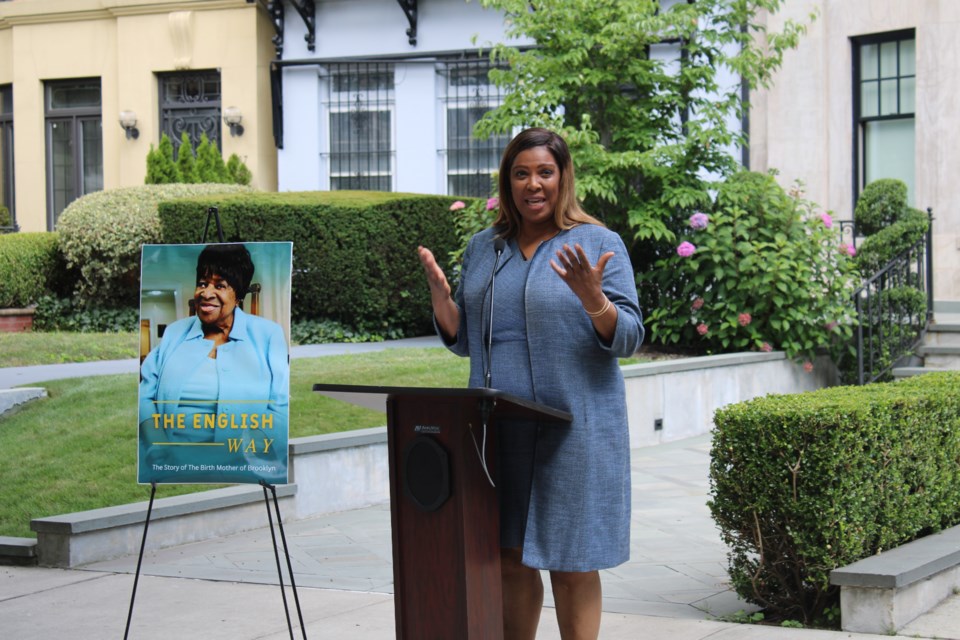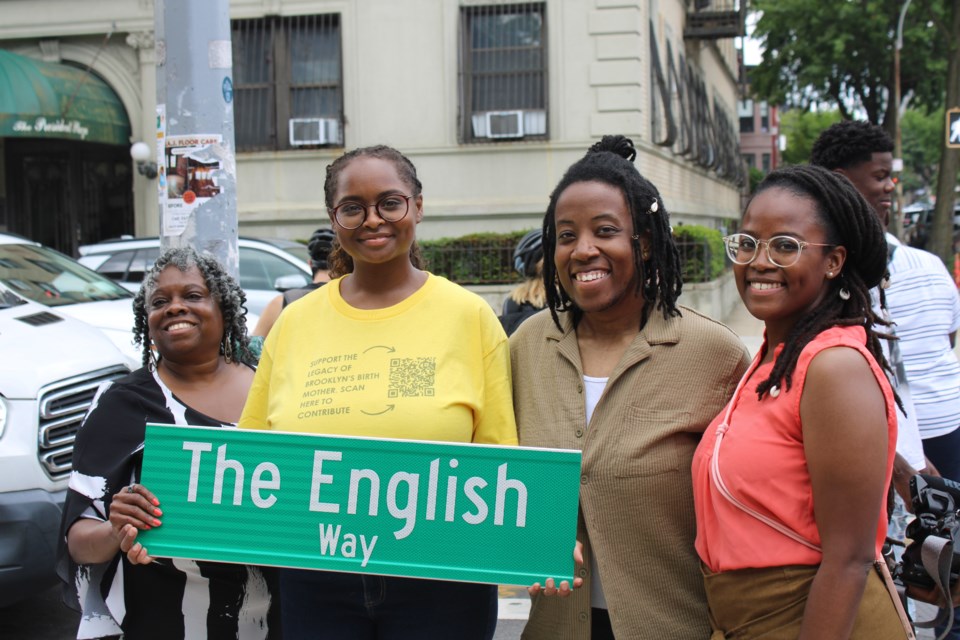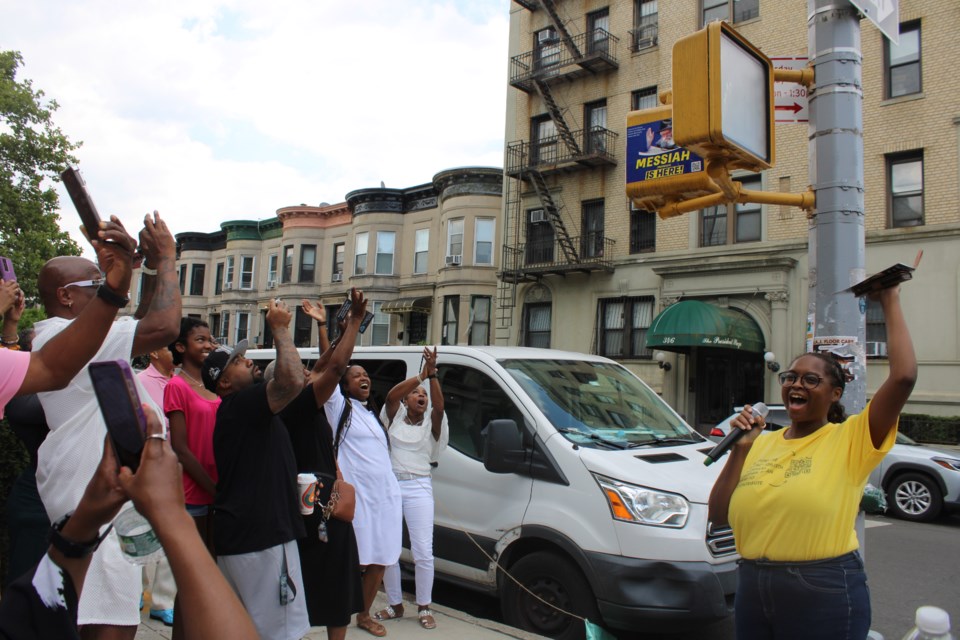A trailblazer in her time, gynecologist Dr. Josephine English is said to have delivered an estimated 6,000 babies throughout her career. Now, a street in Crown Heights where she once lived bears her name.
Dozens of English’s family members, friends and former patients attended a co-naming ceremony on Saturday for the intersection of President Street and New York Avenue in Crown Heights, which will now be co-named The English Way. Several who knew English, including New York State Attorney General Letitia James, spoke about her impact at the event.
“Dr. English was a transformational figure. She focused on maternal healthcare before it became a movement,” said James, who got to know English during her time as a Council Member. “She was in the forefront of maternal healthcare, particularly for Black women.”

Born in Ontario, Virginia in 1920, and raised in Englewood, N.J., Englis earned her B.A. at Hunter College and her M.A in psychology from New York University. She graduated Meharry Medical College in 1949, specializing in obstetrics and gynecology.
She began her career working at Harlem Hospital before she moved to Brooklyn and founded a women’s community health clinic in Bushwick in 1956, making her the first Black woman to open a private practice in the state of New York.
“She was incredibly ambitious, and she worked so hard,” said John Sheppard, English’s son. “She worked six days a week, and she delivered babies at all times of the day and night. She did abortions on Saturdays. You’d think Saturday would be a day off for her, but that was one of her hardest days.”
English founded the Adelphi Medical Center in 1979, which included a senior citizen center, a daycare center, an after-school center and a summer youth program. Among the thousands of babies she delivered were all six of Malcolm X and Betty Shabazz’s children.
Later in her career, English took an interest in the arts and founded the Paul Robeson Theatre in Fort Greene in 1982. She passed away in December 2011 at the age of 91.
The effort to co-name a street after English was spearheaded by Tenisha Carrington, a filmmaker who has been working on a documentary about Dr. English since 2022. Carrington, who was also delivered by Dr. English, got the idea to make a documentary about her after seeing her name on her birth certificate and asking her mother for more information about Dr. English.

“This film and the street co-naming is not just a tribute, but a call to sustain the legacy of our change makers, our community heroes and our medical pioneers, because we need a blueprint,” said Carrington. “It was essential to have this sign in the neighborhood that Dr. English restored herself and nurtured her family, to lay a stamp, to remind those who passed by the rich history of this block.”
Carrington has launched a fundraiser for the film, tentatively titled The English Way. Throughout the filmmaking process, she has become close with English’s family, who is heavily involved in the documentary.
“To be able to share the story with the world and for it to be a documentary that people can watch and really know the history of my bloodline, I'm excited,” said Joanne English Rollieson, a niece. “I'm just proud to be a part of her legacy. And it makes me feel good to see all the support we have here in Brooklyn.”

The film’s title, The English Way, is inspired by the physician's reputation of giving selflessly. “Whenever people were in need, they would ring the bell,” said Barry Shepperd, English’s son. “They couldn't get their rent money, she'd write them a check, or see them in the office and not get paid.”
English reflected on her legacy in a 2008 oral history interview archived by the Center for Brooklyn History, part of the Brooklyn Public Library.
“I did it on my own, that's why I have nothing today. I'm a pauper,” said English. “But I love the community, and I love my people, and I tried so hard to help them.”



.png;w=120;h=80;mode=crop)
